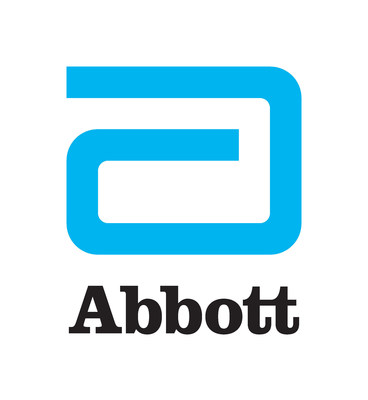TRILUMINATE Study Shows Treatment with Abbott's First-of-its-Kind Minimally Invasive Device Reduces Tricuspid Heart Valve Leaks
- Late-breaking data for Abbott's investigational clip-based tricuspid heart valve repair system presented at EuroPCR
- Data suggest the first-of-its-kind device reduces difficult-to-treat tricuspid regurgitation at 30 days
- Study builds upon Abbott's success with its proven MitraClip™ clip-based technology in treating a similar disease on the left side of the heart
PARIS, May 21, 2019 /PRNewswire/ -- Abbott (NYSE: ABT) today announced positive late-breaking data from its TRILUMINATE study of the company's minimally invasive tricuspid valve repair system. Results at 30 days demonstrated that the investigational device is associated with a reduction of tricuspid regurgitation (TR) symptoms – caused by a leaky tricuspid heart valve – suggesting a possible treatment option for people suffering from this difficult-to-manage structural heart disease. Abbott's transcatheter tricuspid valve repair (TTVR) system builds on the continued advances of the company's proven clip-based MitraClip technology, which treats people with leaky mitral valves.
Results from the TRILUMINATE study were presented in a late-breaking trial session at EuroPCR, the annual meeting of the European Association of Percutaneous Cardiovascular Interventions (EAPCI).
"Treating a leaky tricuspid heart valve has long presented a significant challenge for cardiologists because it is an extremely complex and difficult heart valve to treat," said Georg Nickenig, M.D., Ph.D., professor and chief, Department of Cardiology, University Hospital, Bonn, Germany, and lead investigator of the study. "These data are extremely encouraging, and I am excited about the potential of transcatheter tricuspid valve repair as a minimally invasive treatment option for these very ill patients who have no other options."
Tricuspid regurgitation is a condition in which the valve between the two chambers on the right side of the heart does not close properly, resulting in a backward flow of blood into the right chamber of the heart, which can ultimately result in heart failure and death if left untreated.i.ii.iii Approximately one in 30 people over the age of 65 in the U.S. alone have moderate or severe TR.iv Surgery is the only definitive treatment but is rarely performed due to the high mortality and morbidity rates associated with the procedure. Currently, there are no approved non-surgical, minimally invasive treatments for people with moderate or severe tricuspid regurgitation.
TRILUMINATE is a prospective, single arm, multi-center study at 21 sites in Europe and the United States evaluating the safety and performance of the tricuspid valve repair system in 85 patients with symptomatic moderate or greater tricuspid regurgitation who were determined to be good candidates for percutaneous transcatheter intervention. Results show that at 30 days:
- 86.6% of patients saw a reduction in TR severity of at least one grade (p < 0.0001).
- A significantly greater proportion of patients were categorized as NYHA class I or II (80.5% at 30 days, compared to 25.6% at baseline), an improvement that was statistically significant. Doctors use the New York Heart Association (NYHA) classification system (I-IV) to classify heart failure according to the severity of a person's symptoms with class I causing little to no physical limitations and discomfort.
- Patients also experienced a mean improvement in KCCQ score – a self-assessment of social abilities, symptoms, and quality-of-life – from 53.05 at baseline to 67.25 at 30 days, which was an increase of 14.20 points (a five-point increase is considered clinically significant).
Clinical follow-up will continue through six months and one, two and three years.
"Abbott's experience in developing minimally invasive technologies to help people with heart valve diseases avoid surgery is unparalleled," said Michael Dale, vice president of Abbott's structural heart business. "These data show that our clip-based approach – for the first time ever – may offer a proven treatment for an extremely difficult-to-treat disease that is associated with high mortality."
Abbott's transcatheter tricuspid valve repair system is an investigational device only.
For U.S. Important Safety Information about MitraClip, visit: https://www.structuralheartsolutions.com/us/mitraclip-isi.
About Abbott
Abbott is a global healthcare leader that helps people live more fully at all stages of life. Our portfolio of life-changing technologies spans the spectrum of healthcare, with leading businesses and products in diagnostics, medical devices, nutritionals and branded generic medicines. Our 103,000 colleagues serve people in more than 160 countries.
Connect with us at www.abbott.com, on LinkedIn at www.linkedin.com/company/abbott-/, on Facebook at www.facebook.com/Abbott and on Twitter @AbbottNews and @AbbottGlobal.
i Singh JP , Evans JC , Levy D , et al . Prevalence and clinical determinants of mitral, tricuspid, and aortic regurgitation (the Framingham Heart Study). Am J Cardiol 1999;83:897–902.doi:10.1016/S0002-9149(98)01064-9.
ii Vassileva CM , Shabosky J , Boley T , et al . Tricuspid valve surgery: the past 10 years from the Nationwide Inpatient Sample (NIS) database. J Thorac Cardiovasc Surg 2012;143:1043–9.doi:10.1016/j.jtcvs.2011.07.004.
iii Stuge O , Liddicoat J . Emerging opportunities for cardiac surgeons within structural heart disease. J Thorac Cardiovasc Surg 2006;132:1258–61.doi:10.1016/j.jtcvs.2006.08.049.
iv Topilski Y. Tricuspid valve regurgitation: epidemiology and pathophysiology. Minerva Cardioangiologica 2018 Mar 28 DOI: 10.23736/S0026-4725.18.04670-4).
SOURCE Abbott

For further information: Abbott Media: Mary Kokkinen, (408) 444-2401 or Abbott Financial: Mike Comilla, (224) 668-1872
 BACK TO PRESS RELEASES
BACK TO PRESS RELEASES
